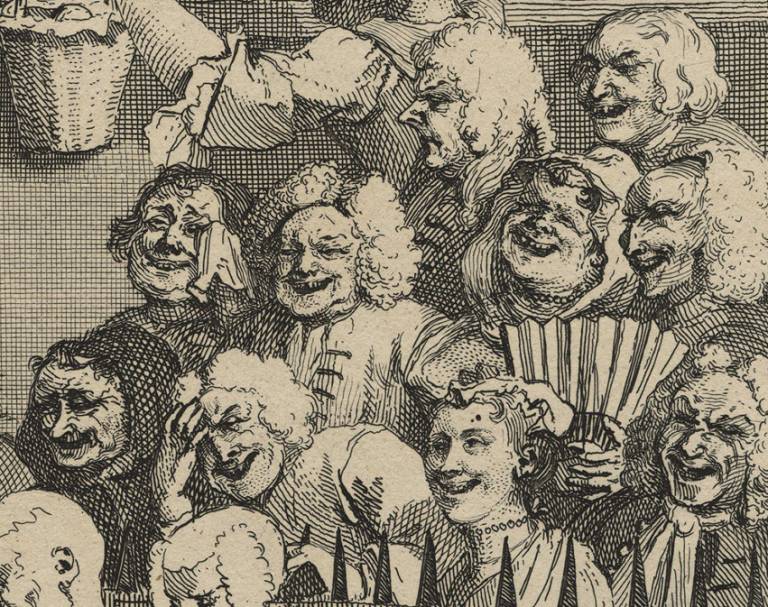POSTPONED - IAS Laughter: Listening to laughter with care - towards a speculative ethics
30 May 2019, 6:00 pm–8:00 pm

Unfortunately, due to unforeseen circumstances, we have had to postpone indefinitely this Vulnerability Seminar.
This event is free.
Event Information
Open to
- All
Availability
- Yes
Cost
- Free
Organiser
-
Alice Rudge
Location
-
IAS Common GroundGround floor, South Wing, UCLLondonWC1E 6BTUnited Kingdom
Unfortunately, due to unforeseen circumstances, we have had to postpone indefinitely this Seminar.
In this talk I question how the ways in which we listen to laughter affects the ways in which we understand it as an ethical force. In doing this, I look to enact something of a speculative experiment in the spirit of non-representational forms of ethnographic writing, and thus attempt to create various different spaces through which we might imagine what is going on as laughter bursts, resonates and affects different bodies. In setting this out, I draw on ethnographic materials gathered by voluntarily working in nursing care homes for older people as part of a project that examined the ethics of laughter in such spaces, with the talk itself focussing specifically on an (arguably failed) attempt to make some sort of sense out of what is happening during two connected moments of laughter. Loosely inspired by Jean Luc Nancy’s ruminations on listening, I therefore highlight three different ways in which we might listen to laughter: as a signifier of some meaningful interaction; as an affective force; and as a circumstantial event – a mode of listening which somewhat encompasses the other two, yet also attends closely to the spacetimes in which the laughter itself occurs. Crucially, each mode of listening also impacts the ways in which we might understand laughter’s relationship with care and thus the kinds of ethical force that we ascribe to it in a similar manner to the ways in which Annemarie Mol (2008) notes with other judgements and ‘logics of care’. Given that all three forms of listening are useful and problematic in their own ways, my argument is not to espouse one manner of listening over any other, but rather to push for a more multiple and speculative approach when listening to laughter with care: an approach which “is not about othering or separating but on the contrary about making connections and commitments” (Barad 2007: 392), therefore holds open all of their different potentials, rather than closing them down. This multi-modal listening and the ethos of connections and commitments afforded by it thus open up key trajectories through which we might afford a more care-full set of ethical judgements towards laughter, both in the context of care homes and in everyday life more generally.
Bios
Phil Emmerson is a human geographer interested in the roles that laughter plays in space. His AHRC-M3C funded doctoral research uses a series of ethnographic encounters to investigate laughter within residential care homes – so far this has seen him working alongside carers as well as travelling with a Pantomime Company who perform in care settings.
Carrie Ryan has recently submitted her DPhil in Social Anthropology at Oxford University, titled 'Risk and Care in an Aging United States.' The dissertation reflects on twenty months of research at a Continuing Care Retirement Community in Los Angeles, where Carrie worked and lived, and more broadly explores how elders imagine their futures in a precarious America. She now teaches social anthropology at Oxford University and Oxford Brookes University and is an Academic Visitor at the Institute of Population Ageing at Oxford University. Her research interests include the social life of population aging, inequalities in aging and dying, and the affective experiences of aging and caregiving in America.
All welcome. Please note that there may be photography and/or audio recording at some events and that admission is on a first come first served basis. Please follow this FAQ link for more information.
 Close
Close

